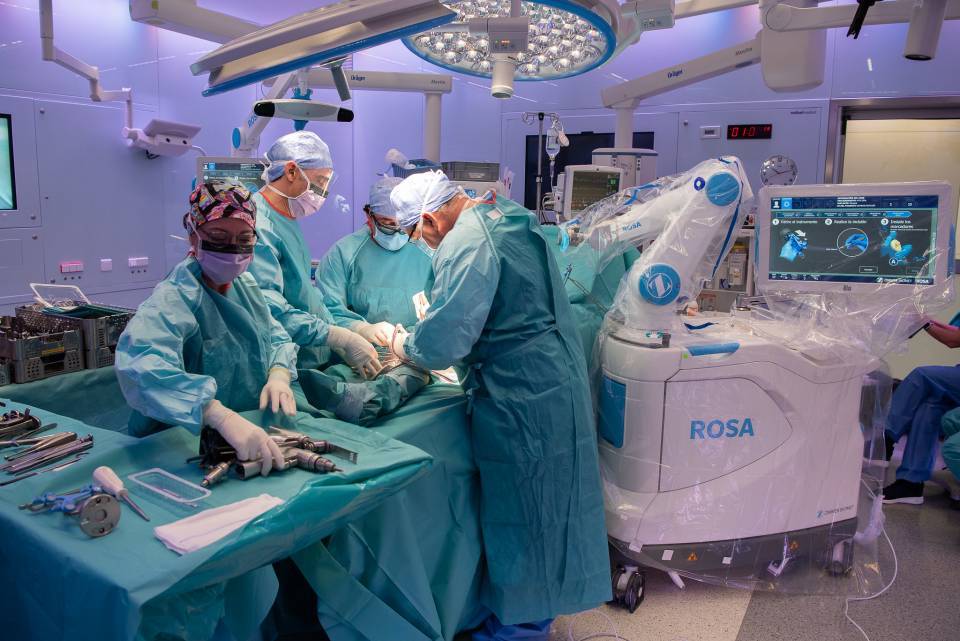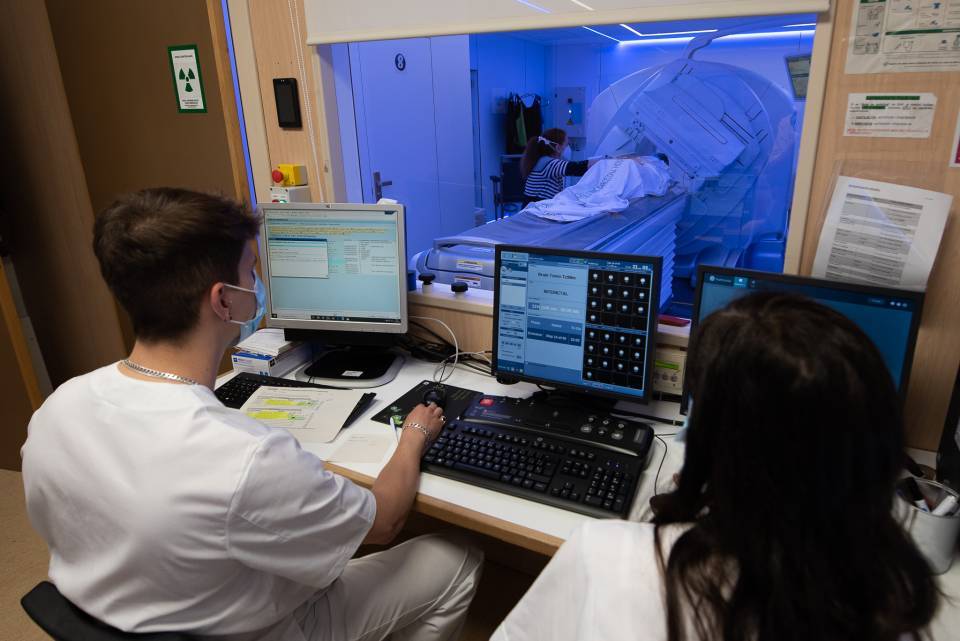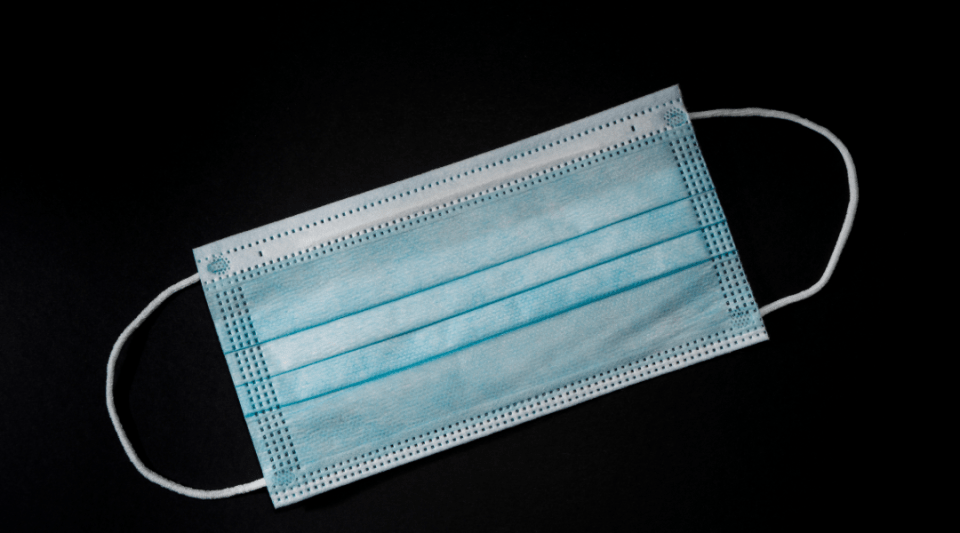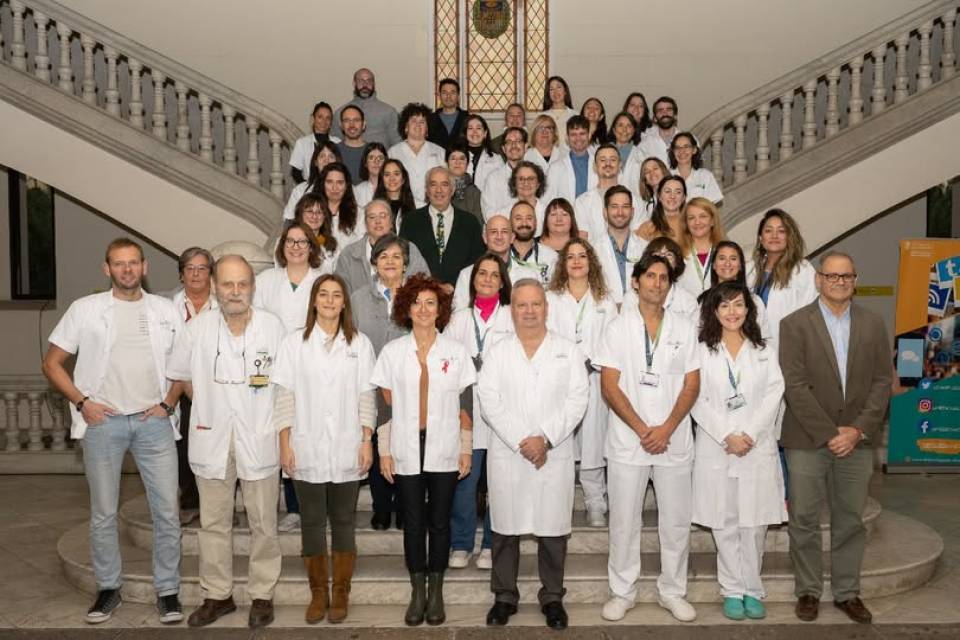The surgeries are led by the Orthopaedic Surgery and Traumatology Service, by the Head of Service, Dr. Pere Torner Pifarré, and by the Head of the Knee Section, Dr. Juan Carlos Martínez Pastor. Each year, the Hospital Clínic de Barcelona carries out 400 primary knee replacement surgeries and over 150 prosthetic replacements. It is a CSUR national referral centre for complex prosthesis-related infections. The Orthopaedic Surgery and Traumatology Service forms part of the Hospital Clínic Medical and Surgical Specialities Institute (ICEMEQ) led by Dr. Josep Maria Segur.
Among other things, this type of robotic surgery allows for better quantification and planning of the parameters of the surgery, with more precise bone resection and improved ligament balance. Robotics allows for greater accuracy in the type of cut, because they allow this intraoperative planning to be transferred to the field of surgery with the help of the robotic arm. In short, robotic surgery allows the whole process to be more precise and accurate and, above all, a more personalized surgery, adapted to each patient’s particular needs. Total knee replacement surgery usually takes between 60 to 80 minutes to perform.
With this type of surgery, each prosthesis can be adapted to the individual case, allowing for better recovery and improved clinical results for patients.
According to Dr. Pere Torner Pifarré, Head of the Orthopaedic Surgery and Traumatology Service, “The Hospital Clínic has consolidated the robotic knee replacement surgery programme. The robot allows us to better plan all the parameters of the surgery and really helps us to adapt each prosthesis to suit each specific case”.
Meanwhile, Dr. Juan Carlos Martínez Pastor, Head of the Knee Section, explains that “Robotics have made us change the type of alignment in knee prostheses. We have gone from a standard mechanical alignment for all patients to a personalized, more functional alignment of the lower limb. An assessment of the results of these first 100 robotic knee replacement surgeries reveals a high level of patient satisfaction, with an improvement in the postoperative pain outcome and rapid functional recovery. The results have also confirmed the high accuracy of the system. This allows us to continue to innovate and provide our patients with greater wellbeing and a better quality of life”.
Robotic knee replacement surgery forms part of the Rapid Recovery Programme in the Knee Section, helping patients to start to get up, move and walk with a few hours of the operation. In addition to helping to empower the patient, this early mobilization can reduce the rate of complications such as deep vein thrombosis.




